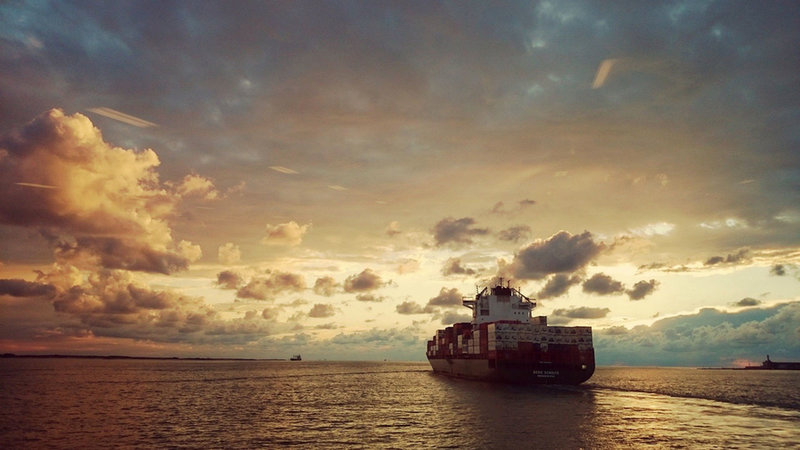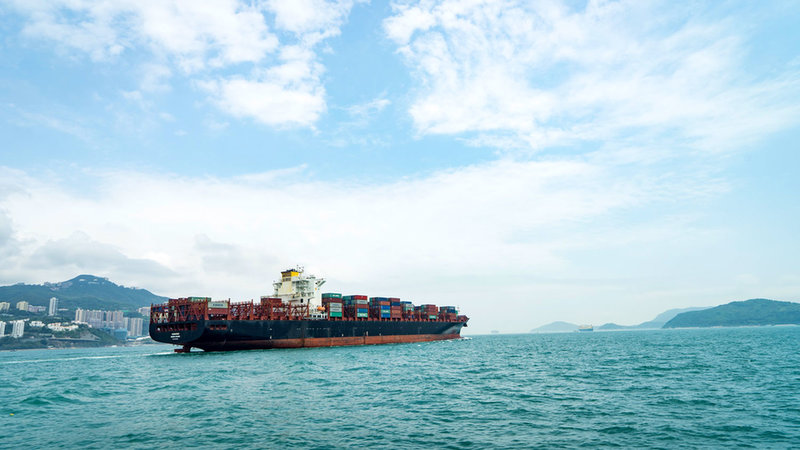CREW
How are maritime careers expected to change after Covid-19?
Covid-19 has brought to light huge inefficiencies in the way that the maritime industry handles and safeguards seafarers. With gruelling reports of stranded workers still coming to light, how will future careers in the sector be affected? And does this industry risk going through a recruitment drought? Alex Love reports.
Image: copyright
Maritime careers have been hard hit by Covid-19, with many new recruits made redundant shortly after the pandemic started.
In addition, an estimated 400,000 seafarers were unable to return home during 2020 as a direct result of the pandemic. Many were forced to stay aboard their vessels for more than 11 months, the maximum period seafarers can serve without leave under the Maritime Labour Convention. This was hardly the best advertisement for a maritime career.
However, as bad as the situation has been, there is a view that it hasn’t been quite as dire as initially feared. And government support has thrown the industry a lifeline.
“Business is down overall. It would be bizarre if it wasn't. But it's not been the car crash that we feared,” says Phil Parry, co-founder of UK-based shipping recruitment specialists Spinnaker Global.
“When we were staring into the abyss at the end of March 2020, we were very concerned that we would run out of cash within a couple of months. But we, like a lot of our clients, have massively got on top of cash control; and have been massively helped by the CJRS furlough scheme.
“Without that, I think a lot of our clients would have probably either gone under or into loss-making territory.”
Nevertheless, the maritime industry is likely to feel long-term repercussions from the pandemic.

As many as 400,000 seafarers worldwide were left stranded by the pandemic.
Entry-level career troubles
Sea cadets and seafarers have suffered the most from the overall drop in maritime activity. Parry is also a trustee of Maritime London, which offers scholarships for seafaring cadets. He says there has been a noticeable rise in the number of cadets dropping out.
“We're losing trainees from the seagoing side of things, and you have to wonder whether the thought of being stuck on board ships if we ever go into another lockdown, or another pandemic happens, will put people off,” says Parry.
“I don't think it will put people off the shore-based industry. But it could put people off the seagoing side of shipping. And we've heard of a number of early retirements as well for seafarers during the pandemic. So I think it's bound to impact seafarers.
“It would probably be overblown to say a ‘shortage’, but it certainly will impact supply.”
Parry predicts the situation will remain largely the same in 2021. This lack of new recruits from 2020 until 2022 is expected to create a two-year hole in experience that will be felt in the years ahead. It’s also likely there will be more competition amongst young people for jobs when the situation starts to recover.
We've heard of a number of early retirements for seafarers during the pandemic.
A similar situation occurred in the aftermath of the 2008 financial crisis. And while the Covid-19 pandemic presents a totally different set of circumstances, some parallels could indicate what lies ahead.
“That hole [in experience] will continue to move up through the market,” adds Parry. “In 2009–2010, we saw very little hiring of trainees and in particular for commercial staff chartering and operations staff. That means that there are very few people around with ten or 11 years’ experience.”
“You end up having to get people with eight years’ experience or people with 13 years’ experience to fill those holes. So, it's difficult to get experienced operations commercial people that are not too senior, not too junior. And we're going to have that same impact again.
“It just gets difficult to fill those vacancies. It then produces a candidate-led market, which has two impacts. Either it means that vacancies go unfilled for a long time. Or it means that salaries get driven up for that cohort of people. So, good news for those who've got the right level of experience or just above it, but bad news for the employers.”

The pandemic has been a tough time for sea cadets and new recruits.
The bigger picture
While the junior level for recruitment has been virtually non-existent throughout the pandemic, there has been a demand for experienced personnel such as in dry bulk operations. Applicants for higher up levels are also sought after.
“In the middle, I would say that the market has been depressed. Not dead by any means, but depressed. So, it's been ticking along at the mid-level. But at the senior end, for board level and executive recruitment, we've been very busy,” says Parry. “It's been chief executives, it's been finance people, it's been crewing people; and it's been fleet management people, classification as well.”
Ultimately, it is not expected that the maritime industry will experience a long-term recruitment drought. But the coronavirus could have a lasting effect on vital areas such as training.
At the senior end, for board level and executive recruitment, we've been very busy.
“There will always be a steady stream coming into the industry. It's how you train and manage those people; it’s how you look after those people,” says Richard Turner, CEO of Tapiit Live, provider of interactive live-streaming training sessions for seafarers.
“You want to bring people through with the right process. You want to manage them, you want to train them and you want them to stay in the industry. You want the future careers; you want [people] to go into shore-side after that. And what something like the pandemic does is cut that short.
“It's a dangerous industry. So, you need your people to come through, you need them trained in the right manner.”
Future maritime training
For those newer recruits fortunate enough to keep their jobs, social distancing and office closures have made training far more difficult during the pandemic.
Turner doubts that classroom training for the maritime sector will ever return to pre-pandemic levels, adding that 50% of businesses providing these services have closed since March 2020.
“People have seen that they can do things online, they can do e-learning. So I think that the classroom is pretty much on its way out from a cost and environmental impact,” suggests Turner.
“Obviously, there's always going to be training that has to be done in classrooms – a practical side element. But at the moment, everything is dominated by the e-learning portals and platforms.”
One of the lasting consequences of the coronavirus is almost certain to be the widespread adoption of video calls. Use has dramatically increased as a direct result of the pandemic, with businesses forced to adapt.
At the moment, everything is dominated by the e-learning portals and platforms.
A fairly new innovation is maritime personnel receiving training via live streaming platforms. This method eliminates travel costs, protects participants from Covid-19 and facilitates interaction with an expert, which is not always the case with e-learning.
Founded towards the end of 2019, Tapiit Live has been leading the way with this innovation, thanks to a partnership with satellite company Inmarsat.
Turner says that Covid-19 has accelerated the implementation of live streaming technologies on ships. The capability was previously thought to be a decade away.
“People want the classroom style where they can interact with a lecture presenter, they can ask questions in real-time,” he says. “We've got three cameras, we've got presenters, we've got interactive sessions where people are joining in conversations.
“We're linking colleagues at home on leave with people on the ship. They have full, interactive training together. Our boundaries now are growing every day.”